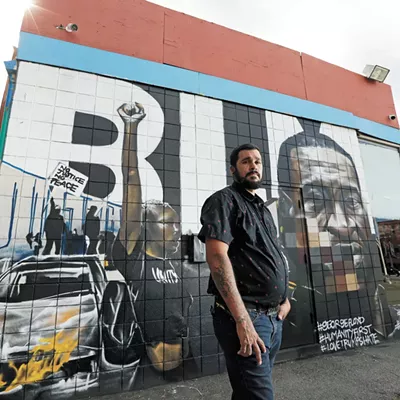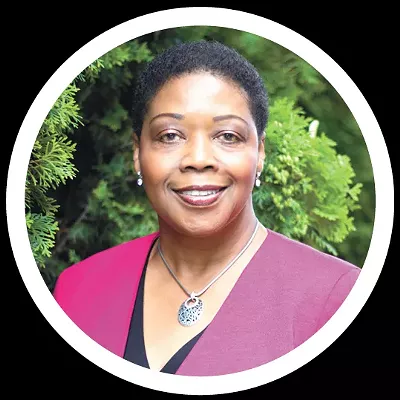I want to start out thanking the Inlander for asking how African Americans feel and elevating our voices. The truth is, it is not often that a person of color is asked what it is that they think or feel. In fact, it is usually asked privately as an afterthought stemming from current world injustices and tragedies.
When asked, "How are you feeling given the current cultural climate?," I can honestly say I have gone through every response on the typical continuum of trauma: fight, flight and freeze. I've had to be intentional with my focus and where I target my energy because as a veteran with PTSD and years of complex trauma, it could cost me my employment, sobriety, and literally my own life.
During these times, it seems as if members of the African American community are not being given the time to grieve or process these injustices as I've witnessed local organizations take it upon themselves to organize community efforts to protest — only later asking people of color to lead them in the charge. This not only undermines our representation and bypasses our trauma but also sends the message, "I know what's best for you, let me help you do things my way! Here are the best practices that worked in my affluent community, and it will help you, too."
This leads me to ask, Why do you have to find people of color to engage your voice, instead of having meaningful conversations and building these relationships from the start? Why can't we care before it all goes wrong, and we are forced to care? Black lives matter and so do our voices if we ever want to fix the perpetually broken public system.
I believe the movement to raise awareness about injustices in the Black community has been hijacked by well-intentioned people who have not only made the movement about their own advocacy efforts, but their personal guilt and politics as well. These are the same people who tell people of color how to feel, how to act and what to do to fix our communities without ever having lived our experiences. I look at complex systems that continue to remain broken by politicians, well-intentioned White leaders and organizations who continually oppress communities by stereotyping the experience and learning how to use the language of the oppressed without making real systemic change.
I hear comments from people who throw out labels like bricks from their glass houses and instead of throwing those bricks back, I often wonder what would happen if we all collected those bricks and built a table, a community, a place where we collectively heard each other and brought all sides and communication styles together?
Together, I believe we can fix these broken systems. Personally, I have made the conscious decision to continue to be a unifier in the community as I have come to believe the pathway of a peacemaker is traveled differently than that of a fighter. It takes building relationships and bridges even when you want to burn them down to the ground. I have often found that if I burn a bridge, it becomes even harder to cross back over.
Trust me, if you are tired of seeing these injustices, Black people have endured this a lot longer than you, as they themselves are exhausted from experiencing them. Challenge yourself and others to adopt the message, "Nothing for us, without us!" If our lives, voices, and community matters, we should not remain an afterthought. We do better when we all stand together.
Are you listening? Here's my advice.
You want to better the Black community? Create scholarships, provide paid internships and stop telling us how we should look, feel or vote. Stop encouraging involvement walking and talking around the community and not address current policies and procedures that negatively impact our community. If you want to help, build clinics that address the unique needs of minority health, educate and diversify your staff, and stop inviting people of color to councils and commissions, then encourage group think. Utilize these conversations to listen with empathy, and a new perspective, most importantly the perspective: "I understand that I will never truly understand."
July is National Minority Mental Health Awareness month. Let's bring behavioral health counselors on college and school campuses that specifically address institutionalized systemic inequities and its long-term effects. Remember to always check yourself and especially your privilege. Just because you know the language does not mean you aren't a part of the problem. Sometimes the very people advocating for us are the same people that silence us the most. Black Voices Matter. ♦
Kitara Johnson is a community leader, advocate, disabled Army veteran, consultant and trainer. She serves as the chief diversity officer at a local nonprofit education and health care organization.





















